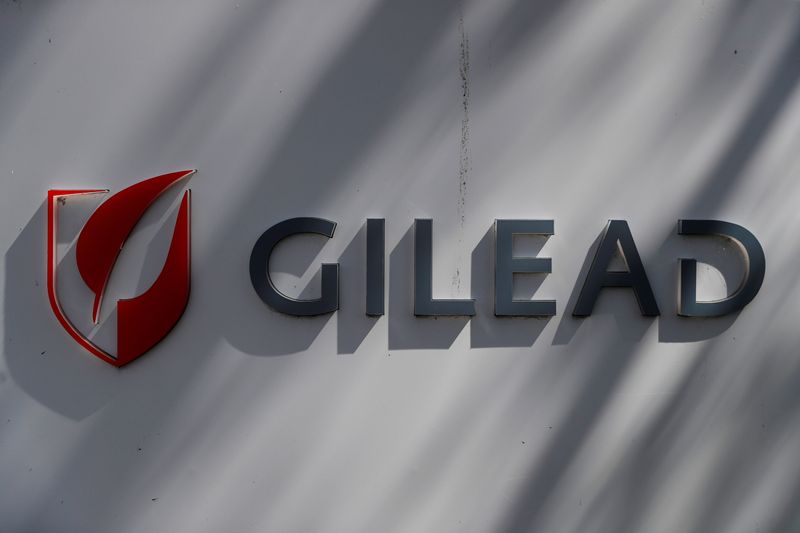FOSTER CITY, Calif. - Gilead Sciences, Inc. (NASDAQ:GILD), a prominent player in the biotechnology industry with a market capitalization of $115.3 billion and an impressive "GREAT" financial health rating according to InvestingPro, received a positive opinion from the Committee for Medicinal Products for Human Use (CHMP) of the European Medicines Agency (EMA) for seladelpar, a treatment for primary biliary cholangitis (PBC), a rare liver disease. If approved by the European Commission, the decision, expected in the first quarter of 2025, will follow the drug's accelerated approval by the U.S. Food and Drug Administration (FDA) in August 2024.
PBC affects approximately 15 per 100,000 people in Europe, mainly women, and can lead to liver failure if untreated. For Gilead, which generated $28.3 billion in revenue over the last twelve months with a robust 77.8% gross profit margin, seladelpar represents another potential growth driver. The treatment, in combination with ursodeoxycholic acid (UDCA) or as monotherapy, has shown promise in improving liver biochemical tests and reducing symptoms such as chronic itch (pruritus) and fatigue.
The CHMP's recommendation is based on results from the RESPONSE study, a pivotal Phase 3 trial. The study reported that 62% of participants on seladelpar achieved the primary endpoint of composite biochemical response at 12 months, compared to 20% on placebo. Notably, seladelpar led to normalization of alkaline phosphatase (ALP) levels, a key marker of disease progression, in 25% of participants at month 12, a change absent in the placebo group. Additionally, seladelpar showed a statistically significant reduction in pruritus scores at month 6.
Dr. Palak Trivedi, Associate Professor at Queen Elizabeth Hospital in Birmingham, emphasized the clinical benefit of seladelpar, marking a significant milestone for the PBC community by potentially addressing both the disease and symptoms impacting quality of life.
Gilead Sciences is also seeking marketing approval for seladelpar in other regions and has initiated a confirmatory long-term outcomes study called AFFIRM. In the U.S., seladelpar's continued approval may depend on the verification of clinical benefits in confirmatory trials. With the stock trading near its 52-week high and maintaining a consistent dividend growth record, investors can access detailed analysis and 10+ additional key insights through InvestingPro's comprehensive research reports, available for over 1,400 US stocks.
Seladelpar is an oral PPAR-delta agonist that has shown anticholestatic, anti-inflammatory, antipruritic, and antifibrotic effects in preclinical and clinical data. It has received FDA Breakthrough Therapy Designation, Orphan Drug Designation, and the EU's Priority Medicine (PRIME) designation.
The information in this article is based on a press release statement from Gilead Sciences, Inc.
In other recent news, Gilead Sciences has experienced a series of significant developments. The company's investigational HIV prevention drug, Lenacapavir, displayed a 96% reduction in HIV infections in a pivotal Phase 3 trial, supporting global regulatory filings projected to commence by 2024. In addition, Gilead reported promising interim results from its Phase 3 ASSURE study on Livdelzi, a treatment for primary biliary cholangitis, with 81% of patients achieving a composite biochemical response.
Moreover, Gilead and Tubulis have entered into an exclusive agreement to develop an antibody-drug conjugate for solid tumor treatment, with potential payments totaling up to $415 million. This collaboration aligns with Gilead's strategy to enhance its oncology portfolio.
In analyst news, Deutsche Bank (ETR:DBKGn) maintained a Hold rating on Gilead with a $73 target, while Bernstein SocGen Group maintained its Outperform rating and $105.00 price target. Leerink Partners and Oppenheimer also showed confidence in Gilead, maintaining an Outperform rating and increasing the price target to $99 and $115 respectively. These are recent developments in Gilead's ongoing commitment to HIV treatment and prevention, as well as its potential for growth and profitability.
This article was generated with the support of AI and reviewed by an editor. For more information see our T&C.
